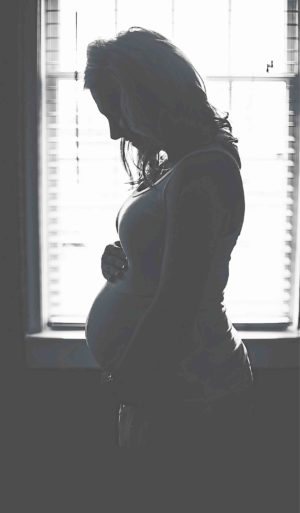A special place for mom

Today, she can choose to balance domestic responsibilities and a thriving career. But when motherhood hits, must she choose between taking care of her job or her baby?
This weekend, as we celebrate the wonderful women who brought us into the world, let us remember their needs, too.
Many of us take care of our moms at home, but what about in the workplace? Republic Act No. 7600 or the Expanded Breastfeeding Promotion Act of 2009, was passed to accommodate the moms who choose to feed their newborns naturally.
The law includes a section on lactation rooms where women can nurse privately and comfortably. While R.A. 7600 mandates “that all health and non-health facilities, establishments or institutions shall establish lactation stations” (Section 11), why is it that only a few offices feature this kind of facility?
Requirements
Article continues after this advertisementAs stipulated in R.A. 7600, the lactation station does not refer to the toilet.
Article continues after this advertisementThough a sink would come in handy, the breastfeeding station is supposed to be a comfortable and hygienic place. The law enumerates that an ideal station should contain a refrigerator, electrical outlets, a table and comfortable chairs. A handwashing area is required if no lavatory is nearby.
Other features might be added, but comfort and privacy should be the main considerations. Curtains, breastfeeding equipment and cleaning supplies are great additions to breastfeeding rooms.
The law states that lactating moms should be given 40 minutes of break for every eight-hour working period to use the breastfeeding room.
Incentives
Some people might argue that having breastfeeding rooms might be impractical in terms of costs, but the government has prepared for that.
To encourage establishments to comply with the law, R.A. 7600 allows the expenses incurred from constructing a breastfeeding room to be deducted from income tax returns, up to twice the amount.
To avail themselves of this benefit, establishments are required to secure a certificate from the Department of Health to serve as proof of their compliance. This tax deduction, however, is only applicable within the period the room was being constructed.
Both employees and firms are also seen to benefit from lactation facilities. The general secretary of the Indonesian Breast-Feeding Mothers Association, Faradibha Tenrilemba, claimed that lactation raises a mother’s productivity, and decreases the frequency of her absences by 27.3 percent. By introducing a lactation station in the workplace, employers can thus expect happier employees and fewer absences compared to before.
Lactation station
The Mamava, an innovative product created by two American women, shows that there’s simply no excuse for not complying with breastfeeding laws.
The design can accommodate almost any place of work. The original model is basically a mobile unit that features all the basic requirements of a breastfeeding room. The space is compact, but it features electrical outlets, charging stations, comfortable seating and solid surface counters.
Other models are designed to adapt to unique situations. The Mamava Mini has a laptop counter and task light for working women. The Mamava inflatable is portable, rentable and can be used outdoors, while the Mamava ADA is a luxury suite in its own right, perfectly blending in high-end places.
The product has been installed in military camps, schools, zoos and offices. Though only available in America, this unique structure shows that lactation stations can virtually fit any situation.
Rooms for mothers in PH
Since R.A. 7600 came into effect, many government offices, malls and public spaces have complied and introduced lactation areas.
While many of these places generously provided for the needs of mothers, work places have yet to follow suit. Especially in the private sector, the mandate is still implemented optionally.
To be fair, the Department of Labor and Employment (DOLE) allows exemption from the Breastfeeding Promotion Act in reasonable situations. Private offices are allowed not to set up if there are no female visitors, pregnant or lactating employees in the room. They are also excluded if there are restrictive features in their areas subject to confirmation by DOLE.
Despite these few exemptions though, DOLE still promotes the implementation of the Act together with other government offices.
Considering these ideas, more offices ought to introduce lactation rooms in the workplace. As the motto of the Mamava company goes, nursing should be a right, not a privilege.
Our spaces today should allow women to carry out their responsibilities as mothers and providers. The lactation room is only one of numerous ways we can help women thrive in this modern era.
(Sources: www.thejakartapost.com; www.mamava.com; RA 10028 or Expanded Breastfeeding Promotion Act of 2009)
The author is a licensed architect who studied abroad and currently works in DSFN Architects. This article is dedicated to her mother who juggles work and family to the best of her abilities.